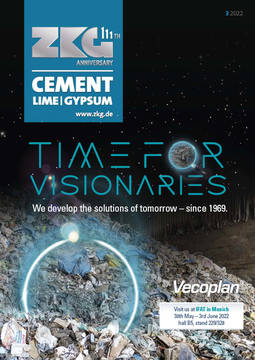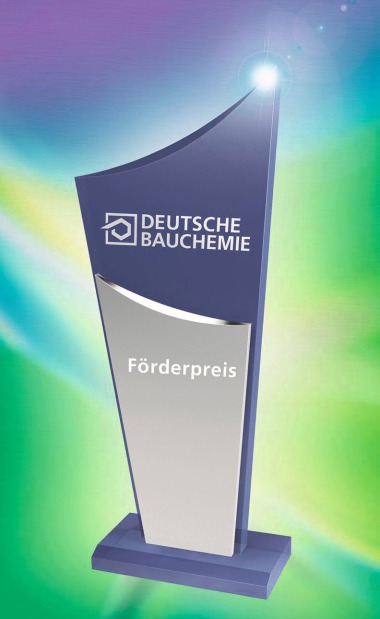Construction chemicals sector anticipates constant high price level and warns of construction site stoppages
In the short term, the war in Ukraine will lead to additional massive availability problems and cost increases for manufacturers of construction chemicals products in the areas of energy supply, raw materials and logistics. The Corona pandemic is also far from over and is having an impact on the industry situation. The entire construction value chain must continue to raise prices to ensure reliable supplies to construction sites in Germany.
In recent weeks, almost all major construction industry associations in Germany have pointed out the serious consequences of the war in Ukraine for the sector. Raw material availability and material supply, drastic energy price increases and problems in international freight and logistics management are the central positions here. The construction chemicals industry is feeling the effects more and more clearly. If this situation continues, the industry expects a standstill at many important construction sites.
Energy prices
Gas prices have continued to rise massively, by over 70% since the start of the war, according to the German Chemical Industry Association (VCI). Continued uncertainty about the reliability of Russian gas supplies is significantly reinforcing the upward price trend. Should there be a delivery stop, there would be a further significant price jump upwards, according to experts. With a share of over 43%, natural gas is the most important energy source for the chemical industry. Exploding gas prices are also pushing up prices for power generation. The situation is critical for diesel. Around 14 % of the diesel sold in this country comes from Russian refineries. Speculation on the international markets is driving prices up further.
At the same time, gas, oil, electricity and diesel prices are subject to enormous price volatility, which makes planning extremely difficult. Prices must be expected to continue to rise and fluctuate sharply at short notice at any time. According to the VCI, the strained situation of companies due to high energy prices has been coming to a head since the beginning of the war.
Raw materials
Raw materials and complementary products important for the industry are currently not available in sufficient quantities on the procurement market, including bitumen, for example. According to media reports (rbb 30.03.22), major refineries have already announced that they will be able to produce less bitumen in the short term. This may lead to material shortages on construction sites relatively soon. In a member survey conducted by the VCI in March 2022, 79 % of the companies were seriously or very seriously affected by the shortages of precursors and the high raw material costs; they speak of a significant deterioration in production conditions in recent weeks.
Supply chains and logistics
The problems in global supply networks caused by Corona, among other things, are being exacerbated by the war in Ukraine and production losses are increasing, diagnoses the Cologne-based Institut der deutschen Wirtschaft. Around 60 % of industrial companies are reporting additional supply chain and logistics disruptions as a result of the war, the Association of German Chambers of Industry and Commerce (DIHK) said in mid-March. Logistics service providers are complaining about the departure of numerous Eastern European drivers who want to defend their homeland as war volunteers; the costs for logistics services are rising sharply as a result and due to the diesel price trend. Current problems are also caused by the lockdown in economic metropolises such as Shanghai, Shenzhen, Changchun and Tangshan. For example, although the Yantian port in the economic metropolis of Shenzhen is open, the loading of containers has slowed down considerably because port workers and truck drivers are staying at home. These delays will be felt in Europe sooner or later.
At the end of last year, Deutsche Bauchemie had already pointed out the consequences of the supply chain disruptions and the significant price adjustments for construction chemicals products that would therefore be necessary (https://deutsche-bauchemie.de/pm-aktuell/details/deutliche-preisanstiege-bei-bauchemischen-produkten-unabwendbar). Despite the price measures implemented since then, the significant decline in margins of, for example, PCE-based concrete admixtures, oil-based concrete release agents, or polypropylene-based polymer fibers has continued, as the cost increases could not be compensated.
Measures
At the end of March, the German Federal Ministry of Construction and the German Federal Ministry of Transport published a decree aimed at regulating the issue of supply bottlenecks and material price changes in a uniform manner for the entire federal construction sector. The decree orders the application of the material price escalator clause for certain construction materials such as epoxy resins, steel or bitumen. An important point for the applicability of the material price escalator clause is the reduction of the minimum interval between bid submission and installation from six to one month. This means that, unlike in the past, many short-running construction contracts can also be included in price escalation.
Increasing flexibility in delivery terms is absolutely essential, and not just for public contracts. In the past, customers were often offered a fixed annual price or a product price fixed over the duration of a construction project – this is no longer possible.
The companies of Deutsche Bauchemie expect the price level of construction chemicals products to remain high in the long term. In addition, the industry, like the economy as a whole, is struggling with the high rate of inflation. According to expert estimates, it will rise this year to an average of well over 5 % (SZ, 23.03.22). The last time this was the case in Germany was over 40 years ago, when the inflation rate climbed to 6.3 % after the second oil price crisis.



